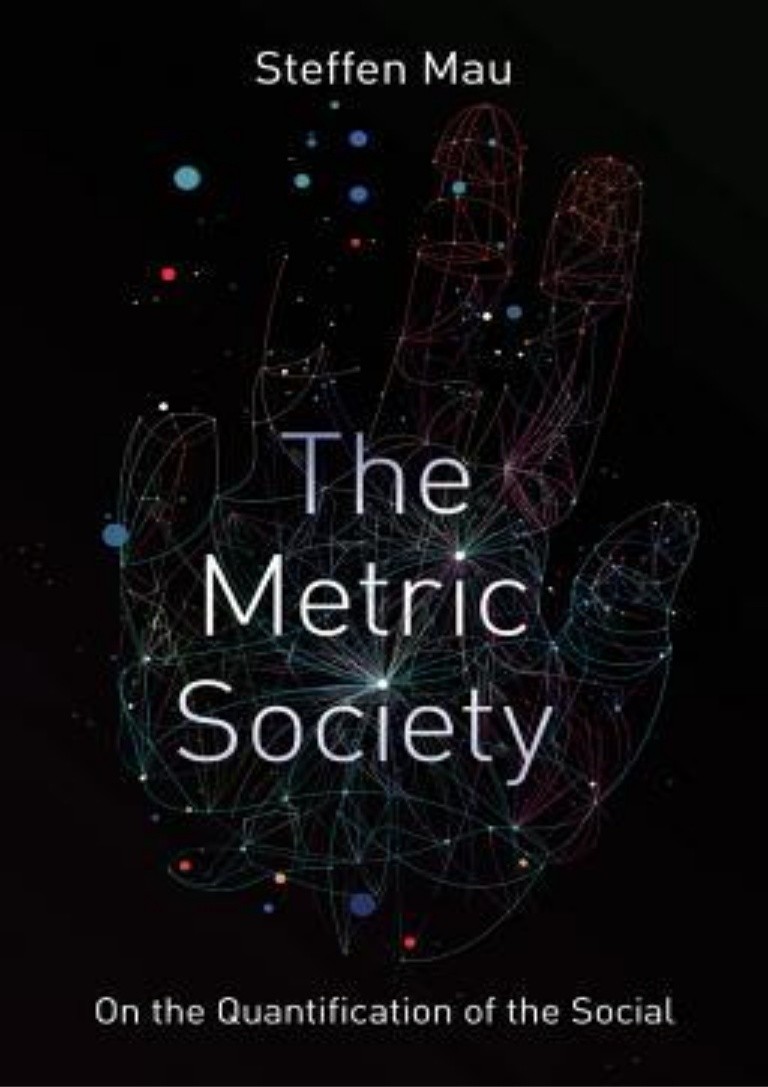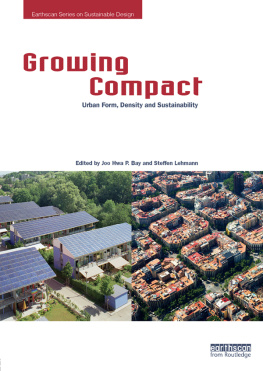Steffen Mau - The Metric Society
Here you can read online Steffen Mau - The Metric Society full text of the book (entire story) in english for free. Download pdf and epub, get meaning, cover and reviews about this ebook. year: 2019, publisher: Wiley, genre: Politics. Description of the work, (preface) as well as reviews are available. Best literature library LitArk.com created for fans of good reading and offers a wide selection of genres:
Romance novel
Science fiction
Adventure
Detective
Science
History
Home and family
Prose
Art
Politics
Computer
Non-fiction
Religion
Business
Children
Humor
Choose a favorite category and find really read worthwhile books. Enjoy immersion in the world of imagination, feel the emotions of the characters or learn something new for yourself, make an fascinating discovery.

- Book:The Metric Society
- Author:
- Publisher:Wiley
- Genre:
- Year:2019
- Rating:4 / 5
- Favourites:Add to favourites
- Your mark:
- 80
- 1
- 2
- 3
- 4
- 5
The Metric Society: summary, description and annotation
We offer to read an annotation, description, summary or preface (depends on what the author of the book "The Metric Society" wrote himself). If you haven't found the necessary information about the book — write in the comments, we will try to find it.
The Metric Society — read online for free the complete book (whole text) full work
Below is the text of the book, divided by pages. System saving the place of the last page read, allows you to conveniently read the book "The Metric Society" online for free, without having to search again every time where you left off. Put a bookmark, and you can go to the page where you finished reading at any time.
Font size:
Interval:
Bookmark:

Steffen Mau
Translated by Sharon Howe
polity
First published in German as Das metrische Wir. ber die Quantifizierung des Sozialen Suhrkamp Verlag, Berlin, 2017. All rights reserved by and controlled through Suhrkamp Verlag Berlin.
This English edition Polity Press, 2019
The translation of this work was supported by a grant from the Goethe-Institut.
Polity Press
65 Bridge Street
Cambridge CB2 1UR, UK
Polity Press
101 Station Landing
Suite 300
Medford, MA 02155, USA
All rights reserved. Except for the quotation of short passages for the purpose of criticism and review, no part of this publication may be reproduced, stored in a retrieval system or transmitted, in any form or by any means, electronic, mechanical, photocopying, recording or otherwise, without the prior permission of the publisher.
ISBN-13: 978-1-5095-3040-3
ISBN-13: 978-1-5095-3041-0 (pb)
A catalogue record for this book is available from the British Library.
Library of Congress Cataloging-in-Publication Data
Names: Mau, Steffen, 1968- author.
Title: The metric society : on the quantification of the social / Steffen Mau.
Other titles: Metrische Wir. English
Description: Cambridge, UK : Medford, MA : Polity Press, [2019] | Includes bibliographical references and index.
Identifiers: LCCN 2018032464 (print) | LCCN 2018034839 (ebook) | ISBN 9781509530434 (Epub) | ISBN 9781509530403 (hardback) | ISBN 9781509530410 (pbk.)
Subjects: LCSH: Information technologySocial aspects. | Data mining. | Big data.
Classification: LCC HM851 (ebook) | LCC HM851 .M38513 2019 (print) | DDC 303.48/33dc23
LC record available at https://lccn.loc.gov/2018032464
Typeset in 10.5 on 12pt Sabon
by Toppan Best-set Premedia Limited
Printed and bound in Great Britain by CPI Group (UK) Ltd, Croydon
The publisher has used its best endeavours to ensure that the URLs for external websites referred to in this book are correct and active at the time of going to press. However, the publisher has no responsibility for the websites and can make no guarantee that a site will remain live or that the content is or will remain appropriate.
Every effort has been made to trace all copyright holders, but if any have been overlooked the publisher will be pleased to include any necessary credits in any subsequent reprint or edition.
For further information on Polity, visit our website: politybooks.com
Introduction
In spring 2015, the Chinese government announced the spectacular and truly revolutionary plan to develop a so-called Social Credit System by 2020. Under this system, data on individual conduct in every social sphere is to be gathered, evaluated and aggregated into a single score. Internet activity, consumption, driving offences, employment contracts, teachers reports, supervisors reviews, conflicts with one's landlord or one's children's behaviour all this may be factored in and may affect an individual's score. Everyone is to be included, whether they like it or not. The idea is to build up an overall picture of each person's value as a basis for granting or refusing them certain opportunities in terms of housing, employment or access to credit. Authorities will be able to draw on this information when interacting with citizens, as will companies seeking to gain an insight into potential business partners. In this way, the Chinese government proposes to reward honest citizens and punish dishonest ones. The declared aim of the project is to create an environment of trust, a mentality of honesty and to do so by means of total social control.
); therefore, they should be regarded as a sui generis reality.
: 141). The fact that practices of measurement, evaluation and comparison are not just creeping, but steaming, ahead is not in itself surprising, given the exponential growth in the possibilities of data generation and processing. But it would be too easy to interpret this general culture of quantification as a purely technological phenomenon: it depends equally on the active participation of a large number of social actors, who not only have to buy into the processes and standards in question, but must surrender their data and allow themselves to be evaluated on that basis.
), along with self-enhancement techniques and new forms of self-optimization. Here too, there is a growing tendency to resort to measuring and quantification processes due to their apparent suitability for tracking individual performance curves and measuring oneself against others. Society is on the road towards data-driven perpetual stock-taking.
) becomes a form of reputation management which is mostly about achieving the best grades, rankings and scores. This applies all the more in a climate of status insecurity, where people have a stronger interest in asserting their standing ideally by means of objective data. To this extent, the desire for quantitatively defined status can be readily understood as a product of the new unease among significant sections of the middle classes. Here again, however, it is a double-edged sword, as the security afforded by objectivized status information is purchased at the cost of intensified status competition.
The possibilities of life and activity logging are currently growing apace: consumption patterns, financial transactions, mobility profiles, friendship networks, states of health, educational activities, work output, etc. all this is becoming statistically quantifiable. True, it is still possible to remain outside, or at least on the margins of, the digital world, and thus to avoid leaving data trails, but only at the price of self-exclusion from relevant communication and networking contexts. All the evidence so far indicates that people are extremely open-handed when it comes to publishing or sharing personal information. This data voluntarism derives from a mixture of factors: the urge to communicate, a lack of caution and, ultimately, an interest in the new possibilities of consumption, information and communication. Furthermore, there is a growing demand for self-quantification which is turning individuals into willing data providers. Self-measurement and self-tracking technologies offer a rich vein for data miners seeking to maximize the available means of describing and predicting our behaviour. The combination of growing quantities of data and increasingly sophisticated analytical processes means that these individual pieces of information can be aggregated into collective units. We are becoming comparable in a multitude of ways: with norms, with other people, or with performance targets that we ought, or wish, to reach.
The cult of numbers that masquerades as rationalization has momentous consequences: it changes the way we construct and understand value or desirability. Indicators and metric measurement techniques stand for specific concepts of social worth, in terms both of what can be deemed relevant, and of what is or ought to be regarded as socially desirable and valuable. Within the quantification regime, such data receive high recognition, as we can see from the role of ratings on commercial evaluation platforms or citation indexes in the academic sphere. The more this mindset is instilled, the greater its social influence. The symbolic dimension of hierarchizing sociometrics is then reflected in an unquestioning acceptance of many of the criteria underpinning quantitative ranking. When those criteria come to be perceived as appropriate, self-evident and self-explanatory, then society can be said to have taken a major step towards the naturalization of social injustice.
Font size:
Interval:
Bookmark:
Similar books «The Metric Society»
Look at similar books to The Metric Society. We have selected literature similar in name and meaning in the hope of providing readers with more options to find new, interesting, not yet read works.
Discussion, reviews of the book The Metric Society and just readers' own opinions. Leave your comments, write what you think about the work, its meaning or the main characters. Specify what exactly you liked and what you didn't like, and why you think so.











